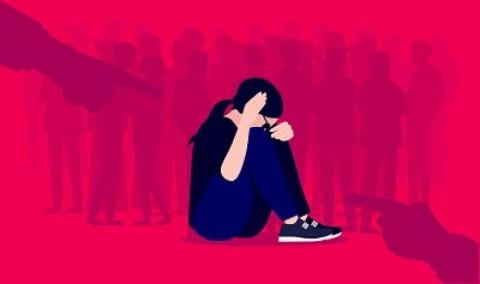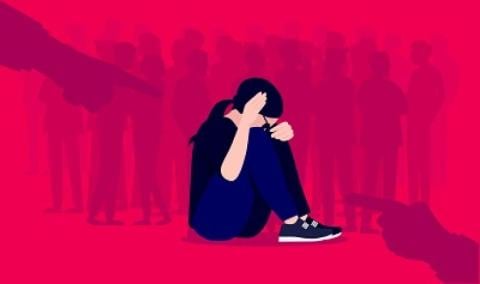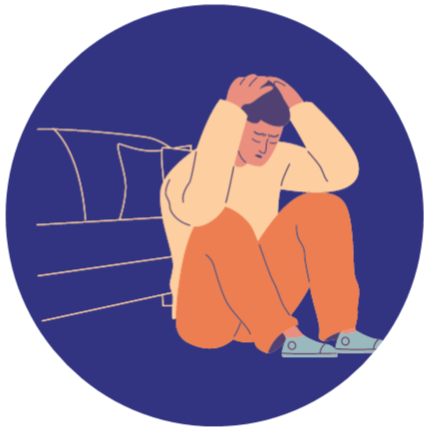So You Have OCD. Now What?
Having obsessive-compulsive disorder isn’t the end of the world. Of course you’d rather not have it, but just like asthma, diabetes, and other medical conditions, there is a treatment. You will be able to live with OCD and manage its symptoms. Just give yourself a little time to learn about this disorder and keep it under control.
What the Heck Is OCD?
OCD is a neurobiological disorder, which means it affects the way the brain functions. Scientists have found that certain areas of the brain work differently in people who have OCD. You didn’t do anything to cause OCD, and you’re certainly not alone. If you don’t already know this, people who have OCD have fears, worries, and bad thoughts (sometimes they’re really disturbing) that pop into your head and just won’t go away. These are obsessions.
Or once in a while, you may have certain uncomfortable urges or feelings that make you feel like you have to do something “just right” or “just so.” What you do to try to make yourself feel better – like washing your hands over and over or redoing your homework until you run out of time and it’s still not finished. Those are compulsions, which are sometimes called rituals. Unfortunately, the more you do these rituals to make yourself feel better, the more you have to keep doing them. They may make you feel better for a little while, but the obsessions just keep coming back. And you may feel like you’re doing compulsions all the time.
Many people with OCD have above-average intelligence. And you’ll find that they are male and female and come from all races, ages, and ethnic backgrounds. In the United States, OCD affects about 1 in 40 adults and 1 in 100 kids.
OCD will not go away by itself, and without treatment, it’s likely to get worse. That’s not to scare you: It’s the truth about OCD. That’s why when you’re tempted to say to everyone (including your parents), “Just leave me alone!” it’s really important that you take a deep breath and, if you haven’t already started treatment, ask your parents to help you find a cognitive-behavior therapist.
How Can I Get Over OCD?
You need cognitive-behavior therapy to get relief. This therapy is about giving you the practical tools you’ll need to outwit OCD. A specially trained cognitive-behavior therapist teaches you to use what is called exposure and response prevention (ERP) tactics; this therapy usually takes only a few months. Learn more about treatments for OCD.
Managing Your Parents and Others
Parents always think they’re helping, but they can make you feel worse when they don’t know what to do, or if they’re constantly telling you what to do. You can help manage the situation at home by not losing your temper when you think they are nagging. It can be really hard to do, but try to remember that they’re trying to help because they care about you. It’s also important to remember that although you’re the one with OCD, others are affected by it, too.
Sometimes family members try to help by doing your rituals with you or for you. The problem is that helping you with your rituals isn’t helping you get over OCD. It’s really up to you to manage them. You can show this information to your parents. Maybe they’ll pick up some pointers about what to do — and what not to do — while you’re trying to get over your OCD.
How Do I Know I’ll Get Better?
Are you wondering if CBT will really give you relief from OCD? .Many thousands of teens, adults and children have committed to doing CBT (which includes homework sessions between sessions with your therapist) and gained control over their symptoms.
It’s not easy to beat OCD. It will take hard work on your part. You’ll need to be open to trying CBT and be honest with your therapist. You also have to commit to going to therapy sessions once a week or more and doing homework assignments between sessions.
In some cases, your therapist may recommend prescription medication for a while if you’re feeling depressed (and OCD certainly can make you feel depressed) or to help ease your anxiety and fears. This can make it much easier to do your CBT work. But the medication may just be needed for the short-term. And you have to have some patience — with yourself and with your family — as you go through treatment.
Everyone Thinks I’m Different … “The One With OCD”
You are different because everyone is different. That’s what makes the world interesting: Everybody has different skills, interests, and personalities. If you think of all your good traits, you might be surprised at how long the list is.
OCD may seem to be overwhelming right now. The thoughts and fears are unwanted, and are sometimes almost too much to bear. No one should underestimate the pain you feel because of OCD. Obsessions and compulsions can take up a lot of your time, too, especially if you haven’t started CBT treatment yet.
But OCD isn’t you. You are a person who just happens to have the illness called OCD, just as some kids have allergies or asthma. But you just want OCD to stop being such a big part of your life. That’s why you need to get CBT treatment. You can learn to manage your symptoms, and feel more like yourself again.















